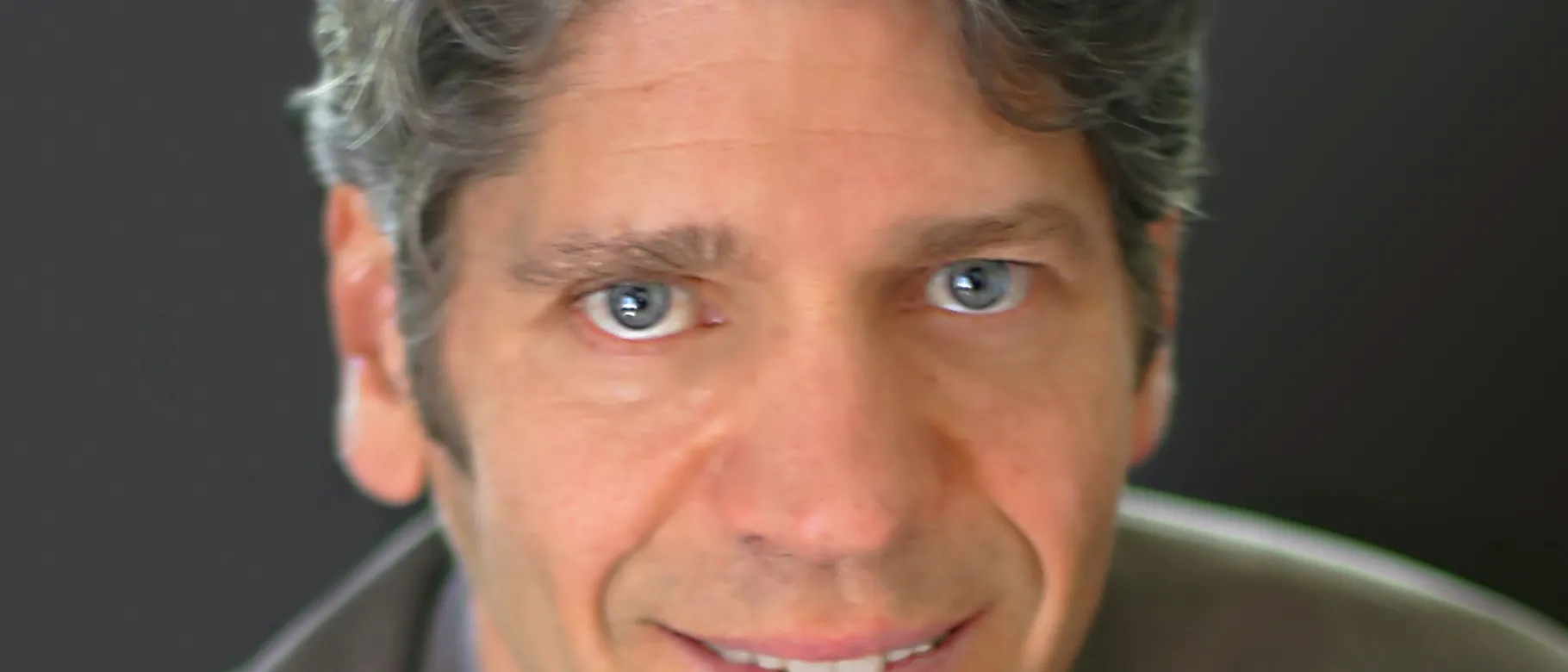Paul Loeb shares message of social responsibility with UNE community

Activist and author Paul Loeb has spent his career studying social engagement and what makes people get involved.
“How do ordinary people take a stand?” He asks. “How do they decide that there is something that needs addressing, some institution that needs changing, some problem that needs tackling, how do they do that?”
Loeb sat down for a discussion ahead of his March 24, 2016 lecture at the University of New England titled, “Soul of a Citizen: How Can You Make Your Voice Heard and Your Actions Count?” As the author of a book by the same title, Loeb addressed what makes people – especially students – become involved in working for change and what prevents other people from becoming involved in social issues.
During his time at UNE, Loeb also visited a class where he discussed this same issue with students. He said one of the barriers to activism among students is they have not been taught that history is not made by a single person or single act. He used the story of Rosa Parks as an example, and explained that her refusal to move to the back of the bus was not a spontaneous act of heroism. Parks had, in fact, been involved with the NAACP for more than a decade. This barrier is part of a trap that Loeb calls the “perfect standard.” He said people are often afraid to get involved because it isn’t the perfect time in their life or they don’t know everything about an issue. “People need to act despite their uncertainties and despite their limitations,” he said. “Engagement with an open mind makes you less vulnerable to manipulation whereas being disengaged makes you much more vulnerable.”
Sponsored by UNE’s Office of Citizenship & Civic Engagement, Office of Intercultural Student Engagement, College of Arts & Sciences Dean’s Office, Department of Society, Culture and Languages, and the Department of Environmental Studies, the lecture was part of the university’s first Day of Service, an effort to inspire students, faculty and staff at UNE to volunteer in their communities. More than 350 members of the UNE community will spend Saturday, April 9 working with more than 20 local non-profit organizations, including Habitat for Humanity, Biddeford Community Bike Center, Biddeford Estates and Seeds of Hope Neighborhood Center. Loeb said it’s a positive step in preparing students for a life of service to their communities. “It gets people out from the boundaries of the college into that larger world and it gives them the opportunity to learn and listen. It can ground them and it can change them, and that can be really valuable. It can be an entry point to then going on and saying let me connect with this community in a deeper way.”
Loeb has spent more than three decades researching and writing about citizen responsibility and empowerment, exploring the questions of why some people choose lives of social commitment while others abstain. He has written five books, including Soul of a Citizen, The Impossible Will Take a Little While and Generation at the Crossroads: Apathy and Action on the American Campus. In 2008, he founded the Campus election Engagement Project, a non-partisan effort that helps colleges and universities engage their students with political elections. Loeb has lectured at more than 400 colleges and universities around the country, including Harvard, Stanford, Dartmouth, Chicago, Michigan, MIT, Yale, Cornell, Duke and Columbia. He has written for publications such as the New York Times, Washington Post, USA Today, Los Angeles Times and the Boston Globe and has been interviewed on national radio and television outlets, including CNN, NBC, ABC, CBS, PBS, Fox, C-SPAN, NPR and the BBC.